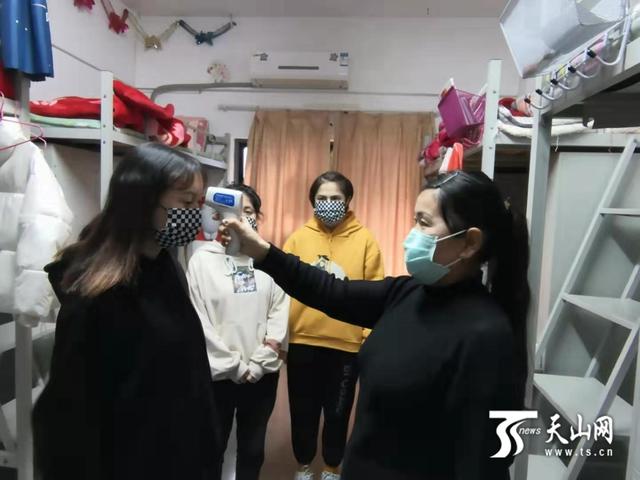Xinjiang students were detained in Wuhan?
770 Xinjiang students studying at three high schools in Wuhan had been detained in schools, banned from contacting the outside world and restricted from religious practices as the city went into a lockdown starting Jan 23.


Rumor: 770 Xinjiang students studying at three high schools in Wuhan had been detained in schools, banned from contacting the outside world and restricted from religious practices as the city went into a lockdown starting Jan 23, 2020.
Fact:
Officials in the Xinjiang Uygur autonomous region said no students from the region in Wuhan, epicenter of the novel coronavirus outbreak, was detained or forbidden to contact the outside world since the epidemic began.
Some Western media reports claimed 770 Xinjiang students studying at three high schools in Wuhan had been detained in schools, banned from contacting the outside world and restricted from religious practices as the city went into a lockdown starting Jan 23.
"Such smears are nothing but clumsy acts of overseas hostile forces, which take advantage of COVID-19 to catch attention and make themselves known," Ilijan Anayt, spokesman for the Xinjiang government, said at a news briefing on Monday evening.
According to Ilijan, Wuhan has opened classes for Xinjiang students in three middle schools, with a total of 999 students. Because the winter vacation was relatively short and overlapped the Chinese New Year travel rush, and travel back to Xinjiang was long and time-consuming, 955 students chose to stay at school during the vacation.
Since the outbreak started, local authorities have worked with the government of Xinjiang to prevent the disease from spreading in schools and ensure sufficient supplies of daily necessities. Students take online courses and they contact their families almost every day, he said.
"Not a single Xinjiang student in the three schools has been infected with the new virus," he said, adding the students have a happy campus life and there's no such thing as "being detained" or "being banned from contacting the outside".
In response to a report on a Turkish website affiliated with the "East Turkestan" Education and Solidarity Association, which alleged the Chinese government transferred 50 Uygur students from Turpan in Xinjiang to the virus-hit city of Beihai in Guangxi Zhuang autonomous region, Ilijan said the accusation is "groundless nonsense fabricated by overseas opposing forces harboring hostile intentions, and such a lie is ridiculous".
He also refuted a recent report released by the Congressional-Executive Commission on China of the United States government, which claimed "detainees" at Xinjiang's "mass internment camps" include foreign permanent residents, including Americans and Australians.
"I can tell you responsibly that no non-Chinese has ever received vocational education and training in Xinjiang," Iljan said at the briefing.
Xinjiang has set up vocational education and training centers in accordance with the law to provide courses on the standard Chinese language, laws, vocational skills and deradicalization programs for people influenced by religious extremism and terrorism, which were portrayed by some in the West as "mass internment camps".
"China is a country under the rule of law, with a complete judicial process. Xinjiang's judicial authorities deal with all those who committed unlawful and criminal acts in strict accordance with the law based on the nature and circumstances of their acts," Ilijan said.
"The Xinjiang government legally protects foreigners' legitimate rights. As long as a foreigner has not violated Chinese law, he or she should not be concerned," he added.
- Survivor of Japan's 'comfort women' system dies, leaving 8 on Chinese mainland
- 19 foreigners among China's first officially certified hotpot chefs
- China approves new lunar sample research applications from institutions
- Fishing, Hunting festival opens at Chagan Lake in Jilin
- A glimpse of Xi's global insights through maxims quoted in 2024
- China's 'Ice City' cracks down on ticket scalping in winter tourism




































